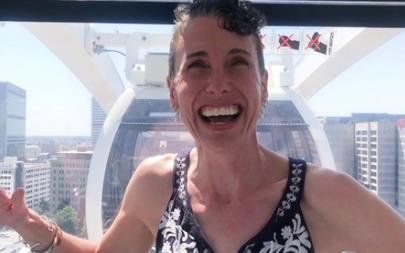As part of this year's OCD Awareness Week, Shala Nicely, LPC, a cognitive behavioral therapist and author of Is Fred in the Refrigerator? Taming OCD and Reclaiming My Life, will be hosting an AMA right here on HealthUnlocked on October 14th at 3pm ET.
What's something you want to know about OCD but were always too afraid to ask? Shala will be here live to answer all your questions! Learn more about her at ShalaNicely.com, and start posting your questions HERE for her to answer on Monday!

